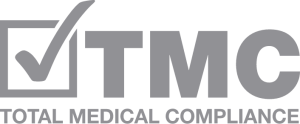HIPAA: Why is a Password Policy Important?
One of the critical aspects of achieving HIPAA compliance is enforcing a mandatory password policy. Failing to do so could have severe consequences that compromise patient privacy and expose healthcare entities to a range of other negative outcomes.
1. Vulnerability to Data Breaches:
Without a stringent password policy in place, healthcare organizations become vulnerable targets for cybercriminals seeking unauthorized access to patient records. Weak passwords or lax security measures create opportunities for hackers to exploit vulnerabilities and enter sensitive systems. Once inside, hackers can steal personal health information (PHI), leading to data breaches that tarnish the reputation of the healthcare provider and put patients at risk of identity theft and medical fraud.
2. Compromised Patient Privacy:
HIPAA’s primary goal is to protect patient privacy and ensure the confidentiality of medical information. Failing to enforce a mandatory password policy can lead to unauthorized access to patient records, potentially revealing sensitive PHI details about medical conditions, treatments, and personal information. This breach of trust not only violates patient rights but can also result in legal repercussions for the healthcare organization.
3. Regulatory Non-Compliance:
HIPAA mandates that healthcare organizations adhere to specific security standards to safeguard patient data. Enforcing a mandatory password policy is an integral part of these security measures. Neglecting to implement such policies can lead to non-compliance with HIPAA regulations, exposing healthcare entities to significant fines, penalties, and legal action.
4. Financial Consequences:
The repercussions of non-compliance with HIPAA regulations can be financially crippling for healthcare organizations. Fines for HIPAA violations can range from thousands to millions of dollars, depending on the severity of the breach and the organization’s response to the incident. These financial penalties can drain resources, hinder growth, and impact the overall financial health of the entity.
5. Erosion of Trust:
Patient trust forms the foundation of a successful healthcare practice. A breach in patient data due to weak password policies or lax security measures can severely erode this trust. Patients rely on healthcare providers to keep their PHI secure and private. Once this trust is lost, patients may seek care elsewhere, damaging the provider’s reputation and potentially leading to revenue loss.
The importance of enforcing a mandatory password policy under HIPAA cannot be overstated. The consequences of overlooking this aspect of data security are significant, ranging from compromised patient privacy and regulatory non-compliance to financial penalties and may also lead to legal battles. Healthcare organizations must recognize that patient data is a responsibility that demands unwavering protection. By implementing and enforcing robust password policies, healthcare providers can reinforce their defenses against cyber threats, uphold the principles of HIPAA, and ensure the continued trust of patients.
OSHA: The transport container is contaminated with blood and other potentially infectious material (OPIM) from our instruments. How should we clean these reusable, transport containers?
OSHA regulation 1910.1030(d)(4)(ii)(C) states: All bins, pails, cans, and similar receptacles intended for reuse which have a reasonable likelihood for becoming contaminated with blood or other potentially infectious materials shall be inspected and decontaminated on a regularly scheduled basis and cleaned and decontaminated immediately or as soon as feasible upon visible contamination.
This can be accomplished by wearing the appropriate personal protective equipment (PPE) and using the same product that you use to clean and disinfect the surfaces in your clinical areas such as OPTIM, Caviwipes, Saniwipes and many others.

Total Medical Compliance
6124 Creft Circle
Indian Trail, NC 28079
Phone: (888) 862-6742
Fax: (866) 875-3809
©2023 Total Medical Compliance

Total Medical Compliance
6124 Creft Circle
Indian Trail, NC 28079
(888) 862-6742
Fax (866) 875-3809
©2022 Total Medical Compliance